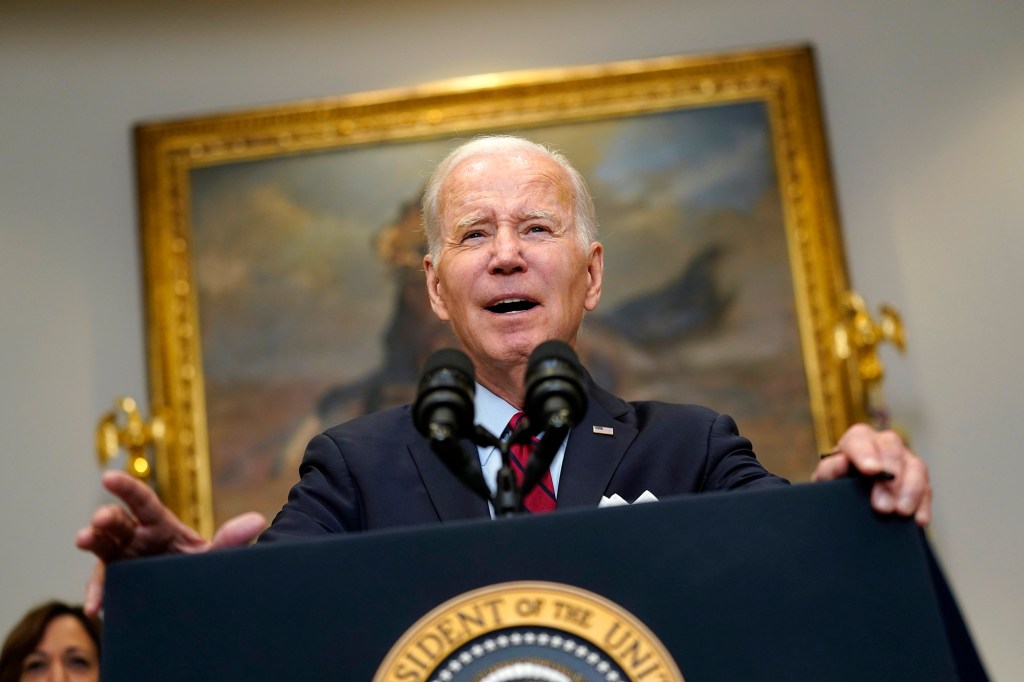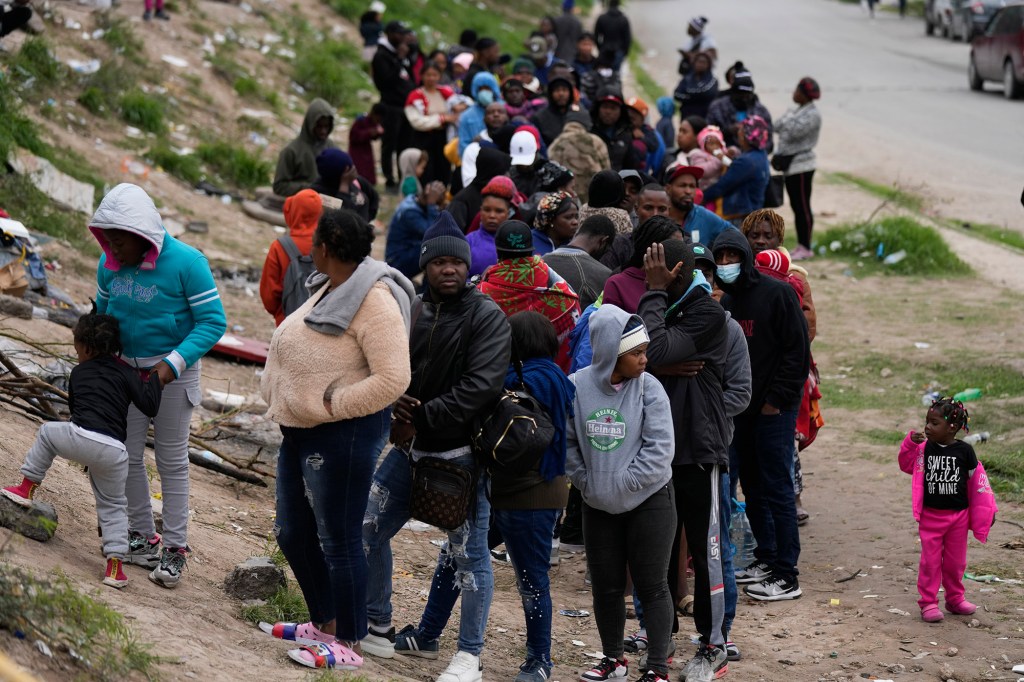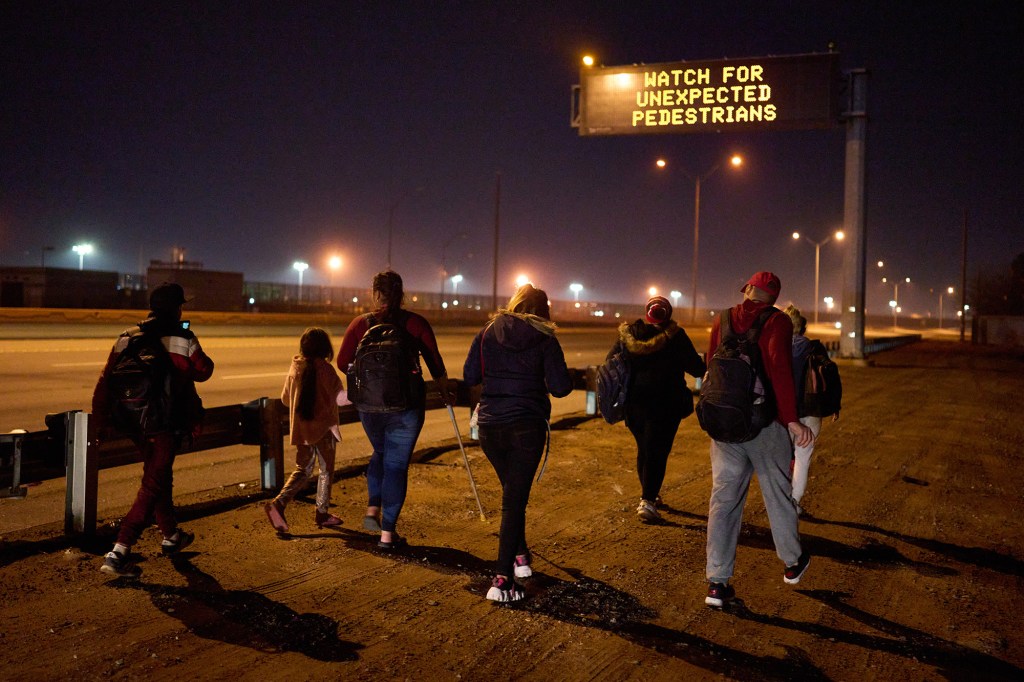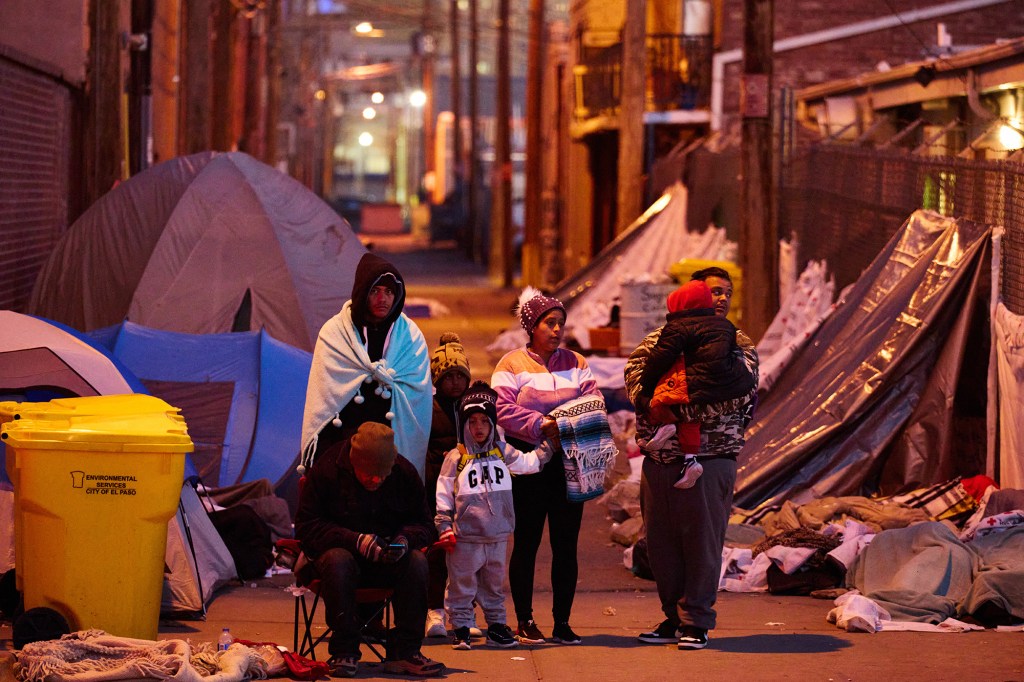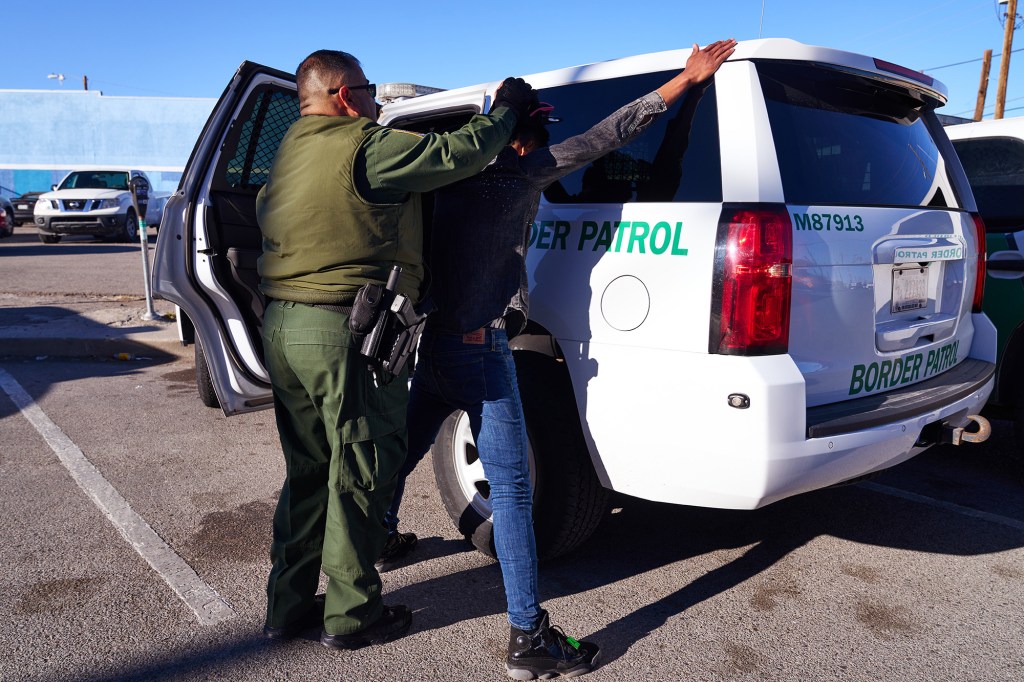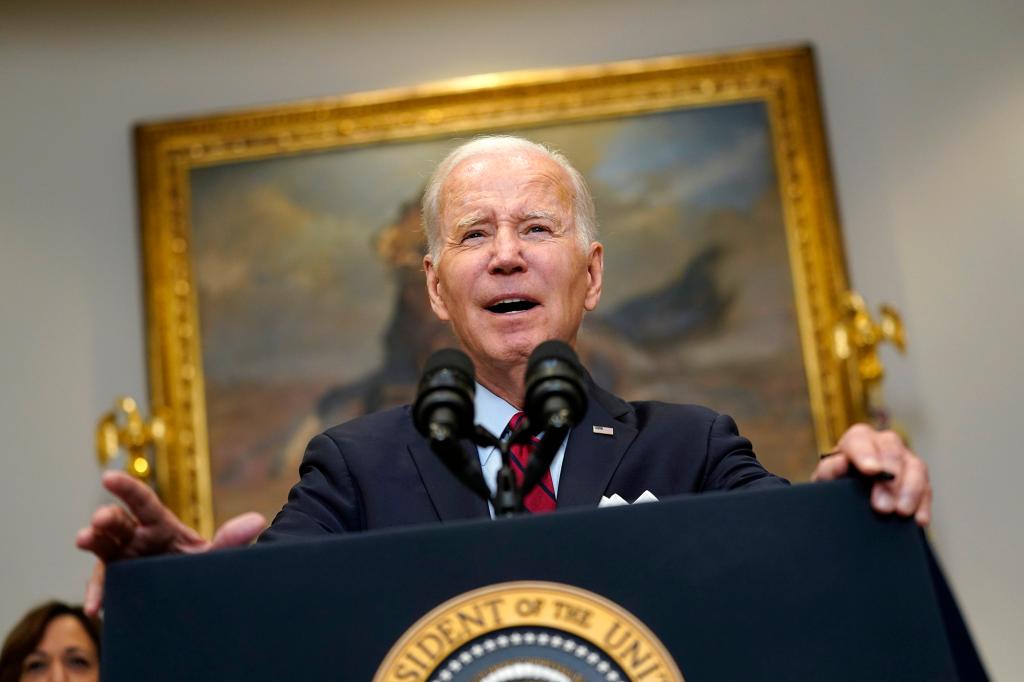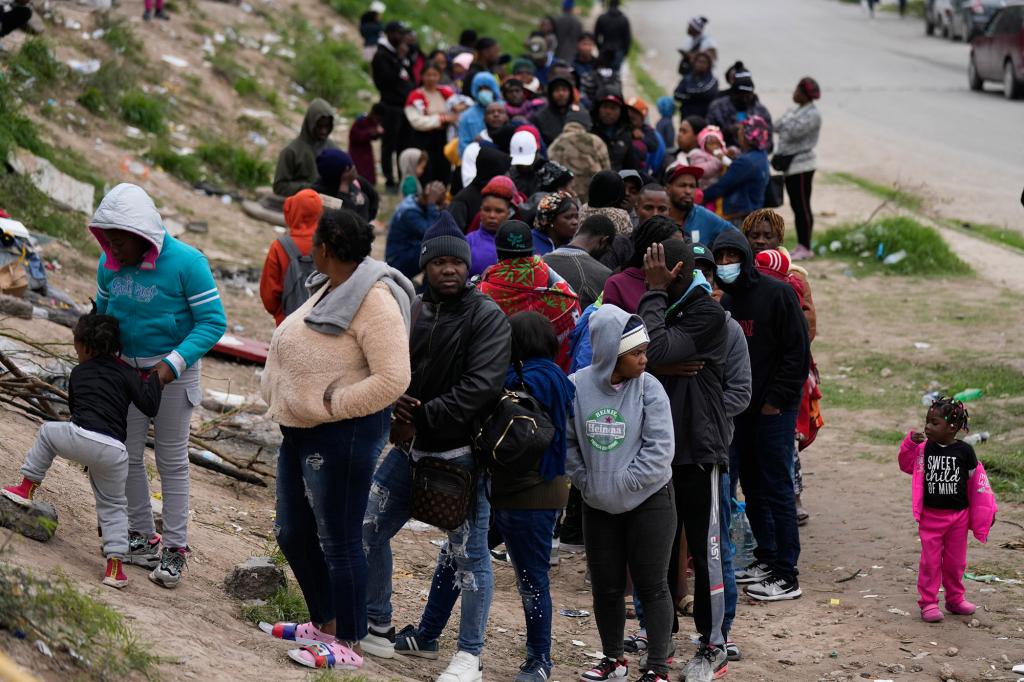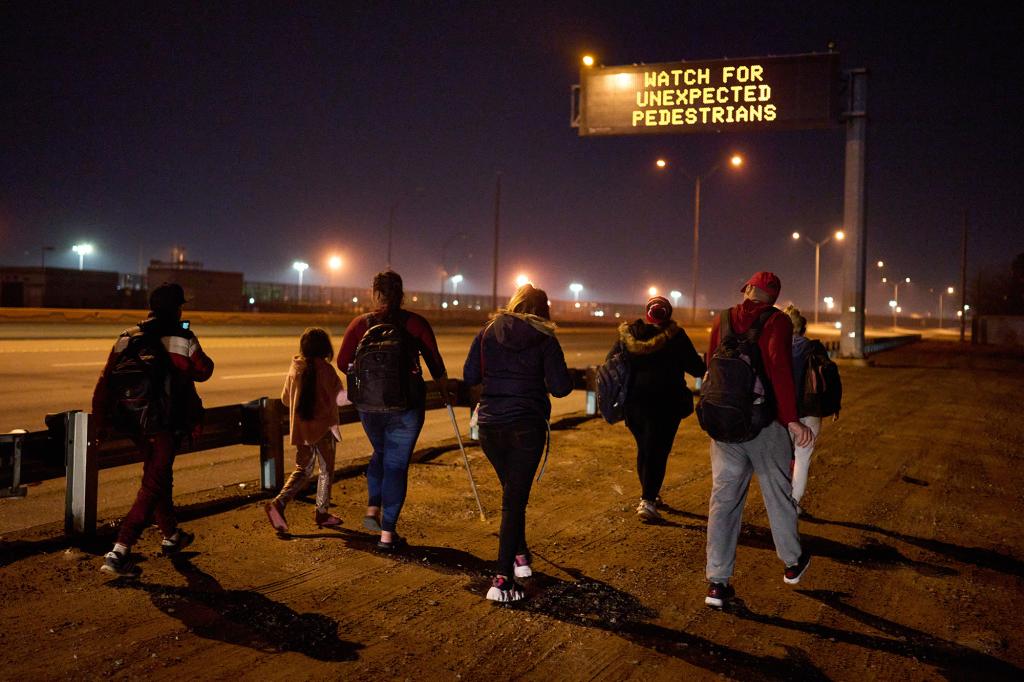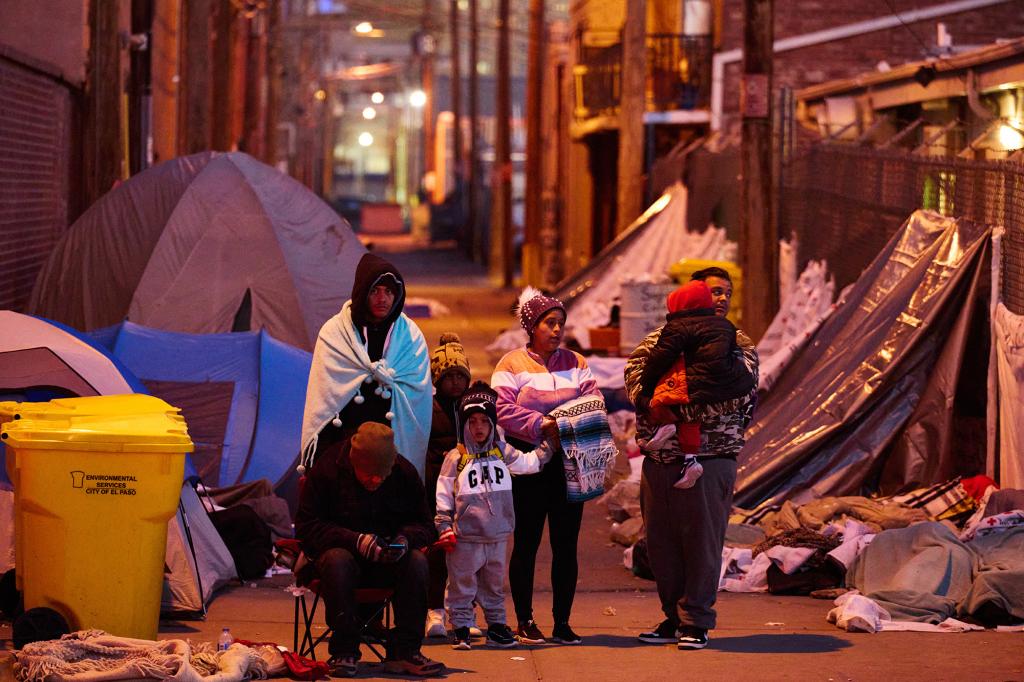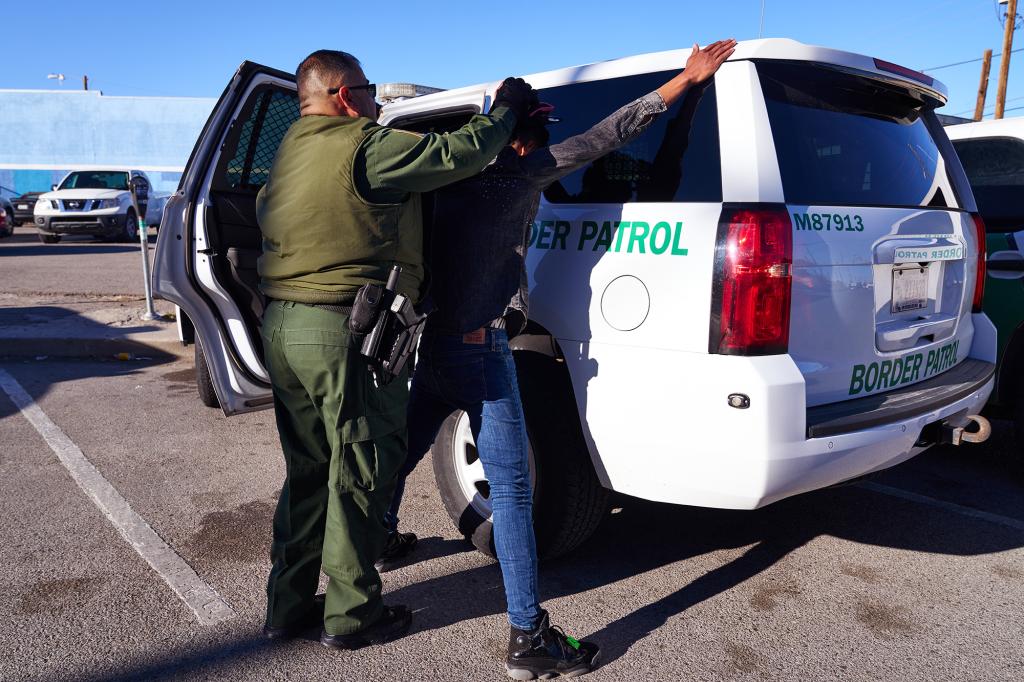Biden ‘parole’ to let in 30K migrants a month from 4 countries
Ahead of a weekend visit to El Paso, President Biden unveiled a new border policy Thursday that will allow in 30,000 migrants a month from Cuba, Nicaragua, Haiti and Venezuela — while also ordering the rapid deportation of those who illegally enter the US from those countries.
Thousands of those four nationalities will be let into America via what Biden is calling a humanitarian “parole” program — but members of those groups are less likely to be admitted than other migrants who illegally cross the border.
“My message is this: If you’re trying to leave Cuba, Nicaragua or Haiti . . . or have agreed to begin a journey to America, do not — do not just show up at the border,” Biden said at the White House.
“Stay where you are and apply legally from there. Starting today, if you don’t apply through the legal process you will not be eligible for this new parole program.”
The deportation policy, a variation on a Trump-era program, was first imposed upon Venezuelans in October, despite their relatively obvious claims of persecution, resulting in tearful deportations of families and scuffles at the US-Mexico border.
Biden said citizens of the four countries — which include three left-wing totalitarian states plus impoverished Haiti — will need a US sponsor and to pass a background check, unlike citizens of other nationalities who are routinely released after reaching the border.
“Starting today, if you don’t apply through the legal process, you will not be eligible for this new parole program. Let me reiterate, you need a lawful sponsor in the United States of America, number one. You need to undergo a rigorous background check, number two,” he said. “If you attempt to cross into the United States unlawfully, you will not be allowed to enter.”
Biden said citizens of the four countries henceforth will not only be deported, but also barred from entering via the parole program in the future if they illegally cross the border.
Roughly 90,000 people from the four countries arrested at the border in November, the most recent month for which nationality data is available, suggesting roughly 1/3 of the cohort seeking to enter the US will be allowed to do so under the new policy.
That contrasts with a much higher admittance rate for people who have been illegally crossing the border, some of whom may be applying for asylum and seeking a better life without specific fears of political persecution.
Official data indicate that just 29% of people who illegally crossed the US-Mexico border in November were deported under the Title 42 COVID-19 health authority, with most of the rest allowed to wait for asylum verdicts while remaining in America.
Advertisement
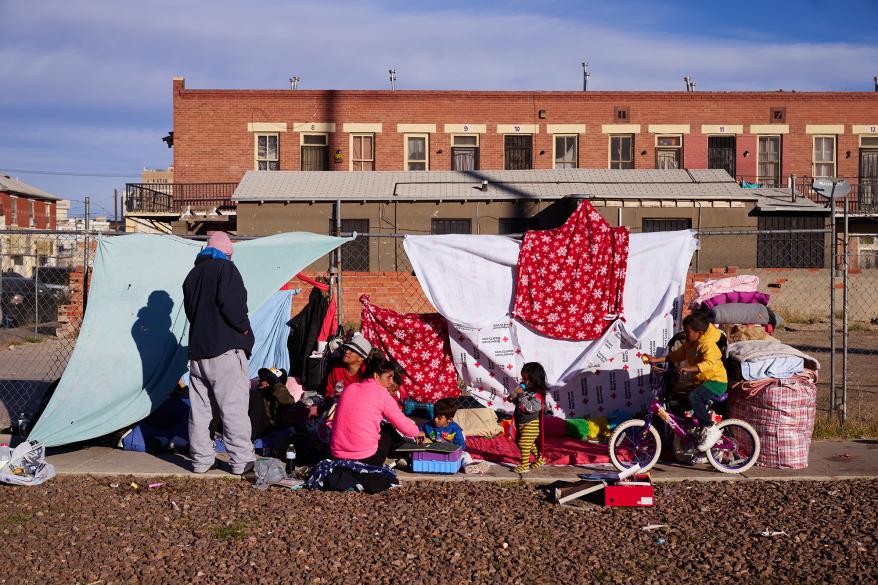
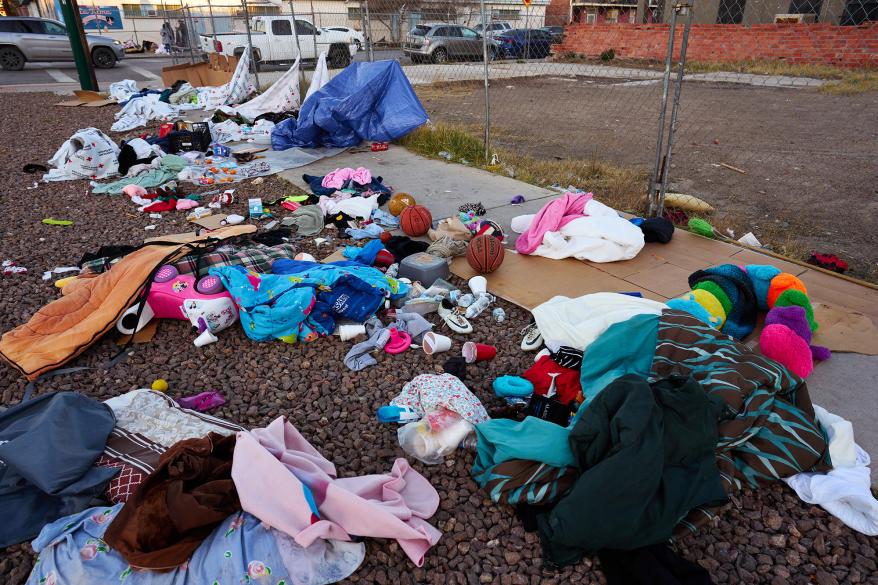
The two-pronged approach appeared designed to blunt criticism from Republicans as record numbers of migrants cross the US-Mexico border while also placating Democrats and immigration advocates who say Title 42 restrictions adopted under former President Donald Trump block migrants from exercising their right to apply for asylum.
“When we started expelling the Venezuelans, we saw a two-day drop in apprehension numbers,” Brandon Judd, the head of the Border Patrol agents union, told The Post.
“Then those numbers started to climb back up. What the cartels did was they just replaced them with another population [of migrants]. What we’re seeing on the border today is cartel-driven. It’s for profit. The cartels are exploiting our loopholes knowing that these people are going to be released.”
“You can’t just say: Venezuelans, Cubans, Nicaraguans. You can’t do that,” Judd added. “You have to ensure that Title 42 is being exercised across the board with everyone.”
The new tactic contrasts with the Biden administration’s prior attempts to explain the border crisis as a pitiable byproduct of people seeking political freedom.
“Let’s remember, these folks are fleeing communism,” White House press secretary Karine Jean-Pierre said at a Sept. 20 briefing about the border crisis — slamming Florida GOP Gov. Ron DeSantis for flying some of them to Martha’s Vineyard.
“When you think about Venezuela — what’s going on in Venezuela, when you think about what’s going on in Nicaragua, when you think about what’s going on in Cuba: They are fleeing political persecution only to be used as a political pawn by the Florida governor.”
The latest move comes one day after Biden confirmed plans to make his first visit as president to the US-Mexico border Sunday to observe the effects of the border crisis.
Advertisement
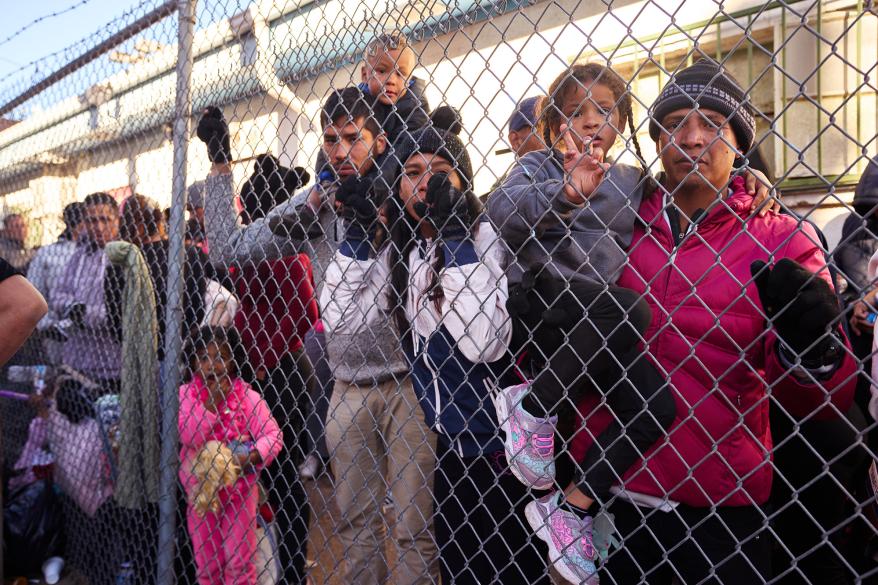
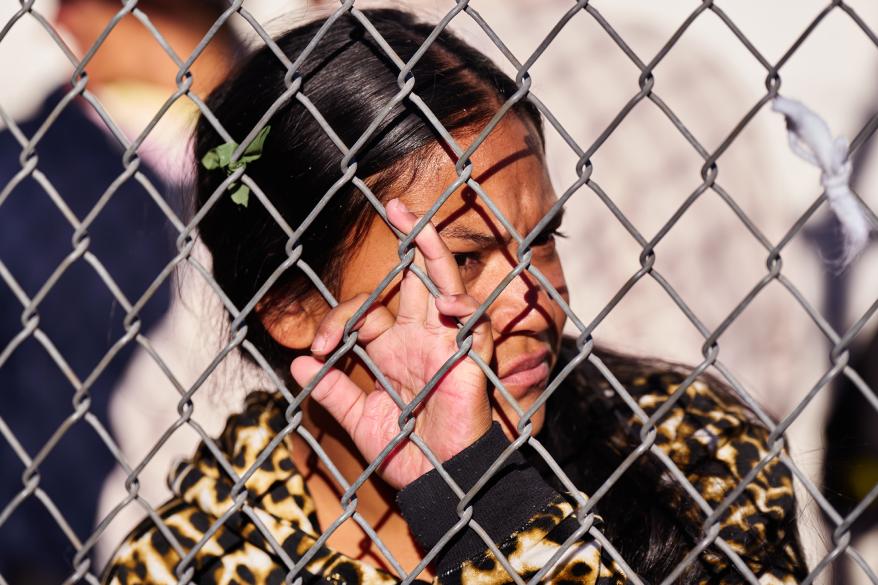
After stopping in El Paso, Biden is scheduled to travel to Mexico City on Monday and Tuesday for meetings with the leaders of Canada and Mexico. The talks are expected to touch on the border crisis.
Biden halted construction of Trump’s border wall — though officials have quietly moved to close some gaps — and ended Trump’s “Remain in Mexico” policy that required migrants to await asylum decisions south of the border. He also called on Congress to establish a path to US citizenship for most illegal immigrants currently in the US.
Biden’s administration also has gradually relaxed enforcement of Title 42, which allows border officials to swiftly expel most people who illegally enter the US in the name of public health. The Supreme Court is reviewing a court battle over the policy and is expected to rule in the summer.
Additional reporting by MaryAnn Martinez and Post wires








